Khara Gilmore loves nothing more than facing a challenge—and surpassing it
By Jo Mathis/AAPS District News Editor
Two songs go through Khara Gilmore’s mind as she makes her way through a typical day in her AAPS middle school: “Diva” by Beyonce, and “Survivor” by Destiny’s Child.
“I play these songs every day in my head to kind of remind myself that I can do things,” says Khara, her melodic voice full of enthusiasm.
Those who have watched Khara Gilmore—a perfectionist who sets high standards for herself—agree that she’s quite adept at doing things.
The straight-A student—who loves nothing more than studying for an upcoming test—is a singer, musician, orator, good friend, and all-around self-actualized 11-year-old.
The AAPS District News last visited Khara when she was a Bryant first grader continuing her journey as a child with blindness.
Her mother, Jennifer Joseph, a school psychologist with AAPS, admires the way her daughter is able to advocate for herself and other students with different needs, and is proud of how far she has come academically and socially. She calls Khara’s progress this year in middle school “incredible.”
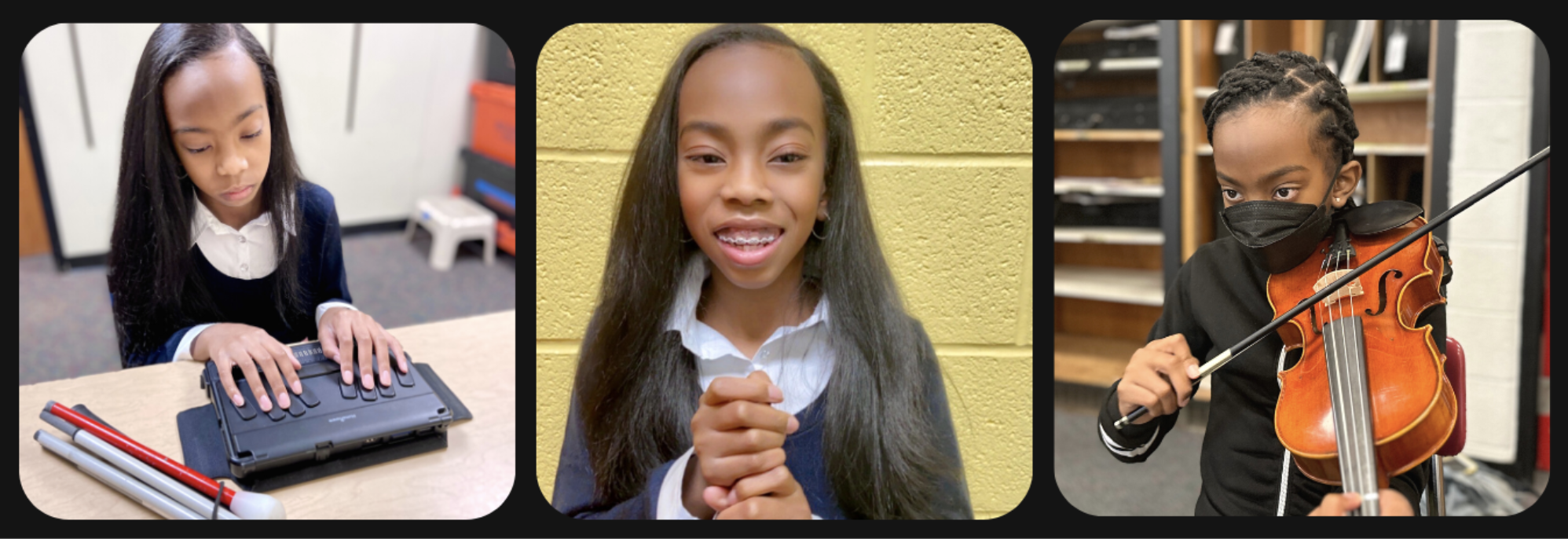
“She was a little nervous about all the changes that were going to happen between elementary and middle school,” she said. “There’s a big transition, but she’s handled it with grace. I’ve seen a lot of maturity since the end of last year, over the summer, even things she has an interest in that she wants to try. She’s been brave enough to try a lot of things – cross country and voice lessons and exploring music. She’s matured in a lot of ways academically, and socially. She’s grown in a lot of ways.”
Kathy Christensen, an orientation and mobility specialist at the Washtenaw Intermediate School District, has worked with Khara since she was a three-year-old at Westerman Preschool and Family Center.
Christensen says Khara is exceptionally bright and may be the only student she knows born
without sight who has an innate ability to conceptualize space and concepts without ever having
a visual representation. She is able to “visualize” and make a map of her school and
environment, which is pretty unusual and incredible.
Christensen said Khara was quick to get to know the layout of her new school this year.
“She’s learned landmarks and clues around the building and she can problem-solve and figure out where she is,” said Christen. “She’s gotten very secure in herself and she does a great job navigating.”
Blind at birth, Khara was 5 months old when her condition was diagnosed
Khara was born with septo-optic dysplasia, and if you ask her about it (and she hopes you will), she’ll tell you that it’s a rare developmental disease present at birth that causes underdevelopment of the optic nerve.
Khara’s mother, Jennifer Joseph, an AAPS school psychologist, recalls the shock of learning that her five-month-old baby—whom she had come to suspect had a visual impairment that she assumed could be corrected—was in fact totally blind.
Nothing can prepare a person for news like that, she says.
“There’s always a grieving process when you find out something about your young child that you carried for so long and prepared for,” Joseph says. “You’re hit with jarring news and trying to figure out how to move forward and what support they will need to be successful and to raise someone to be independent and kind and an amazing individual all around.”
A self-proclaimed diva, Khara expands her skills and interests in middle school
Khara began receiving early intervention services through Washtenaw Intermediate School
District at 6 months of age, and then attended Westerman Preschool, Bryant and Wines
elementary schools before moving up to middle school this year in sixth grade.
Khara’s aide, Lauren Kenny, is with her at school every day to assist her when she needs it. When Khara navigates through the halls, using her cane to lead the way, Kenny is not far away.
“Coming into middle school this year I’ve seen a huge jump,” says Kenny, who has been Khara’s aide for two years now. “Her mobility and being more independent with her school work has been super impressive.”
“She’s very kind, very sensitive to other people’s feelings, very creative, very smart, loves to write, great sense of humor,” she continues. “And she’s really funny, so we laugh a lot.”
Khara is also musically gifted, with a singing voice that seems effortless, a sharp memory and melodic voice ideal for reciting prose, and a talent for the piano and violin, Khara has performed on stage since she was three and loves every minute of it.
The fact that she loves to perform is one of the reasons she straight out calls herself a diva.
“But it’s not because I have a big attitude or something like that, which I do not,” she says. “I’m not anything like that. But I like a challenge. I only like to get good grades. I like having A’s … Another reason I call myself a diva is that I like to get on stage and sing. And some people are nervous because they think that people are gonna look at them. But I don’t feel like that because I can’t see people.”
Her mother says that as she’s gotten older, Khara has learned more about her strengths as she’s pursued new interests. For instance, with the assistance of two high school runners this year, she ran on her school’s cross country team (“The meets were epic!” she says) and plans to run track in the spring.
“She’s not her disability, she’s not her condition and she can still do everything that she wants to do when she finds a way to do it,” she says.
Questions people ask. And don’t.
She knows the one question people want to ask her is: Have you always been blind?
“I like talking about that because I like giving people information about it,” says Khara, who loves the chance to share information about S.O.D. “I say, `I was blind my whole life. It hasn’t been that hard for me, actually.’”
Does she ever worry that people feel sorry for her because she’s blind?
“Sometimes,” she says. “And I always tell them how S.O.D. works and what it’s really like because I think they need to know about that. And I think that makes me unique. People always stop me in the hallway and say, `Hi, Khara’ or something like that because they know I have S.O.D. Even the seventh and eighth graders know me. Even if it’s just to say hi, that means that they recognize me and they know that I’m there.”
At the same time, sometimes someone will ask her a question about her cane that she finds silly, such as the woman in a store who asked: “Do you use that (cane) to twirl?”
“They should know better,” she says. “They should. They should ask me questions instead of just assuming that I twirl or whatever. And my mom jumped in and said, ‘She can’t see,’ and then she just walked away.”
As self-assured as she is, Khara is a typical sixth grader who wants to fit in and be accepted for who she is.
Khara says she has all the qualities of a great friend, and simply needs to be allowed to be one.
She recalls the time she heard a student say to another, “Here comes the blind girl.”
Before she could finish responding, “I have a name and my name is Khara,” they had walked away.
“And I just felt like they never really got to know me because I was just someone that they recognizes as the girl with the cane,” she says. “I didn’t really like that because they didn’t know that I had a name, I had a face—and of course, I was wearing a mask, but they should have known that I was not just someone that needed a cane. They should have known that already. So I just felt kind of upset about that and a little frustrated about that because this (condition) is easy to talk about.”
As for people asking if she needs help, she appreciates the intention.
“I normally say, ‘No, I’m good.’ Or something like that. But sometimes it’s a little hard to say that, especially if they’re my friend. And I always wonder what people think I can see. And like on the first day of school, I was trying to just fit in with everyone because I thought that they would say, `Why do you have that cane?’ And as I became more comfortable with this school, I realized that people were going to ask about my cane and tools that help me because they were interested, not because they were trying to upset me.”
Technology is a boon that continues to make life easier
Technology is a boon that continues to make life easier for Khara, especially with virtual learning during the pandemic. With her BrailleNote Touch braille tablet, she can complete her assignments in braille and send them to her teachers in a format they can read. She also uses it for reading textbooks, audiobooks, math equations, graphing, and writing. Also available is a hand-held device that acts as a GPS for students who are learning to navigate sidewalks and streets independently that calls out addresses and directions for them, and can even describe the next intersection.
And of course, Khara takes advantage of the music programs she can use to record herself.
Another favorite piece of technology is her Alexa home device, which allows quick, easy access to so much information, music, and communication.
In the future: A guide dog? YouTube channel? A career in music?
WISD’s Kathy Christensen predicts big things in Khara’s future, including a guide dog when she gets to high school—a notion that makes Khara smile.
As for the future beyond that?
Khara can picture herself continuing to participate in cross country track, later completing
marathons.
“I’ve always wanted to be a teacher because I like helping people and teaching them things,” she says. “I
also want to study music in the future. One day soon, I hope to start a YouTube channel to share
my everyday life, gifts, and love of music with other people.”
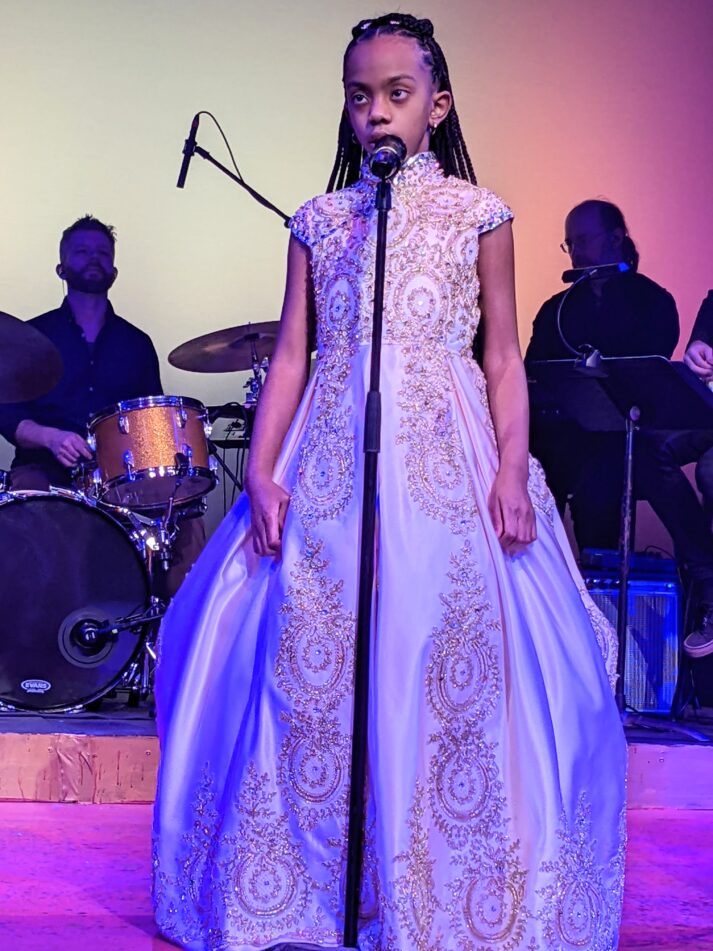
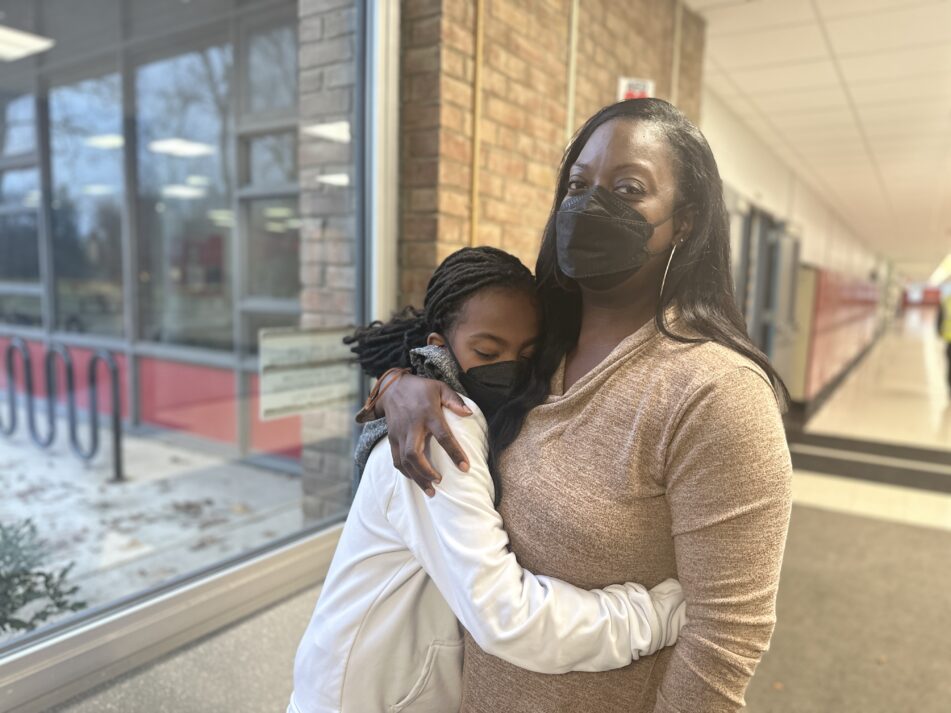
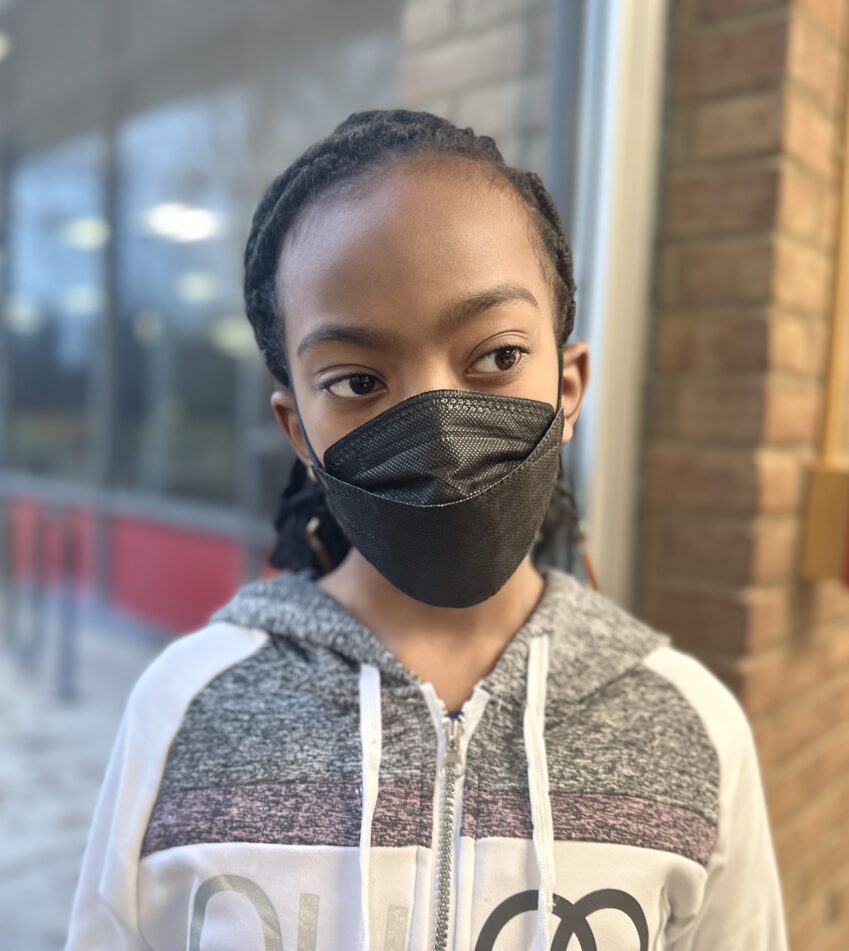
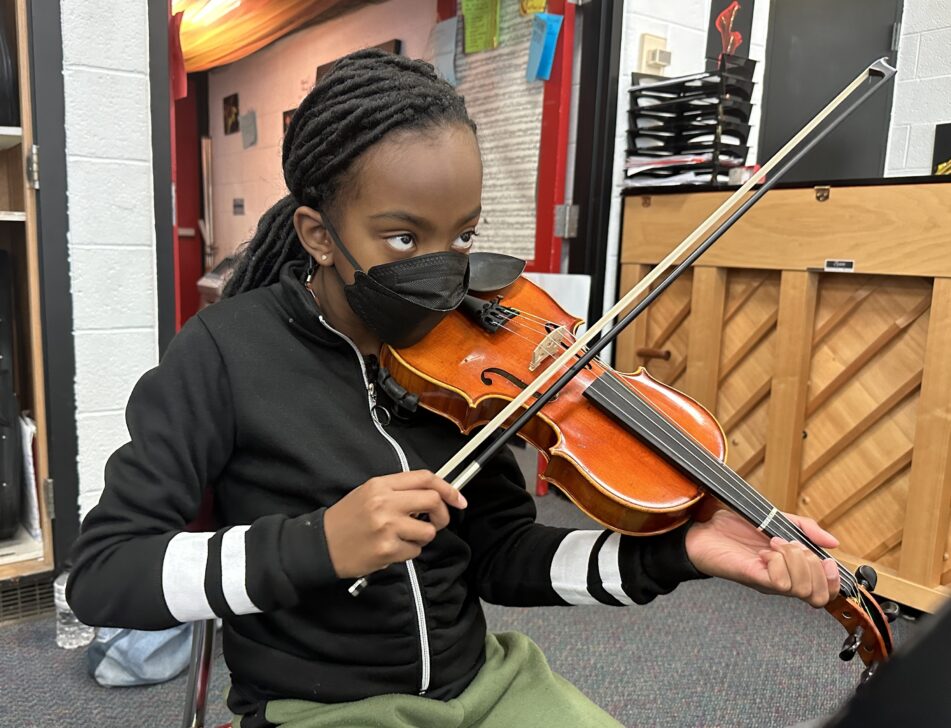
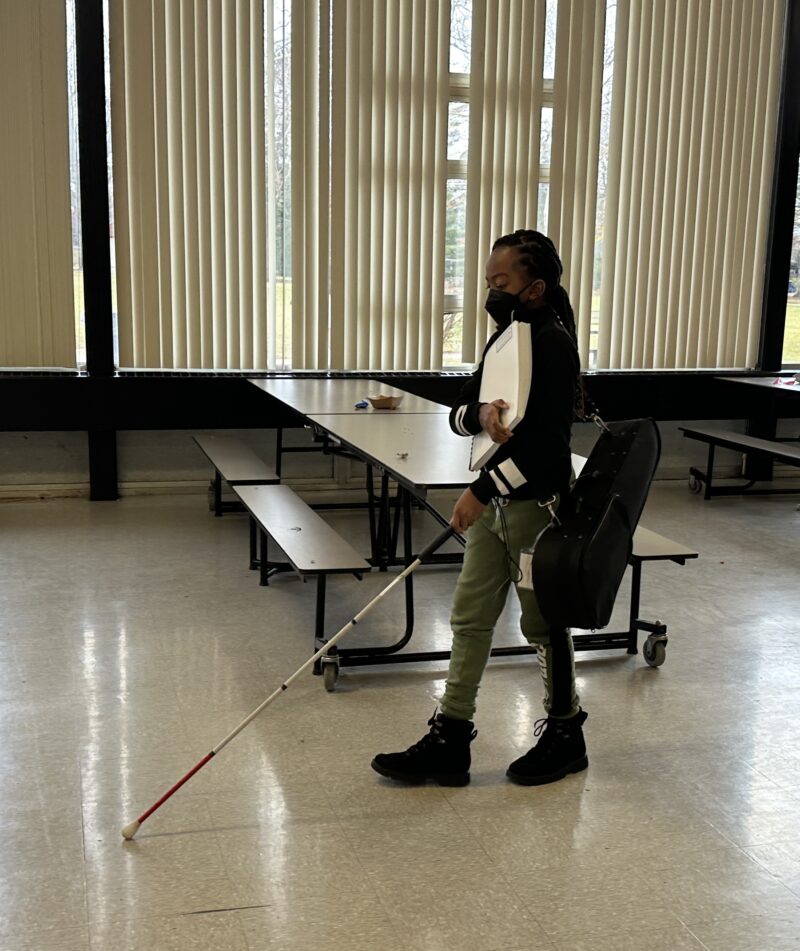
Khara and her mother talk about the importance of Braille books
Khara is featured on the cover of the 2023 Braille book catalog for Seedlings Braille books for children, which is a non-profit organization that provides free, low-cost Braille books for children.
In the following CBS Detroit video, Khara and her mother talk about the importance of Seedlings Braille books for children:

test comment